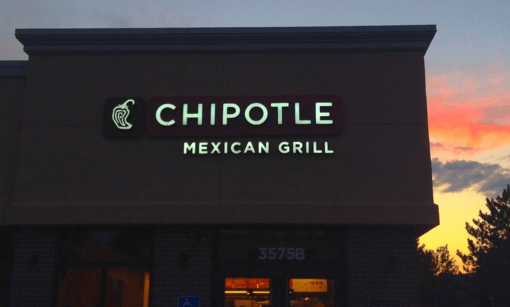Counter Punch: Chipotle Bell
by Peter A. Coclanis | February 16, 2018
A year or so ago, I was sufficiently desperate as to walk into a Whole Foods store. The grocery chain I normally shop at had run out of coffee filters, and Whole Foods was nearby. What the hell, I thought, and stoically entered that paragon of green capitalism. I found what I was looking for—filters—albeit overpriced, inferior ones made from “unbleached paper” distributed by a company with the totally obnoxious name If You Care. This company’s corporate b.s., plastered all over its website, goes like this: If You Care knows you care. We all do. We care simply because it’s the right thing to do. Now, more than ever.”
Overlooking the delicious irony that the “Now, more than ever” construction was made famous as the tag line in Richard M. Nixon’s 1972 re-election campaign, the treacly If You Care self-righteous moralism is characteristic of almost all firms trying to fill one or another green- capitalist niche in the U.S. economy. Perhaps the most egregious of such firms in recent years has been the now much-derided fast-food (oops, “fast-casual”) restaurant chain Chipotle. The Colorado-based chain was once famous for its claims of freshness and naturalness, its over-the-top denunciations of foods containing purportedly dangerous GMOs, and its finger-wagging at competitors that didn’t meet its supposedly exalted standards. Today, of course, the firm is infamous not only for its belly-busting 1100-calorie burrito bowls, but also for the repeated outbreaks of food poisoning at its outlets. Although Chipotle’s motto is “Food with Integrity,” it would be more appropriate to change it to “Food with Norovirus, Salmonella, E. coli, and Campylobacter.” Available with a side of hepatitis. Now, more than ever.
The fact that Chipotle, which was founded by Steve Ells in 1995, expanded rapidly in large part because McDonald’s was a major investor between 1998 and late 2006—and its major investor for much of that period—should have raised at least a few questions about its simon-pure posturing. And that’s not meant as a slap against Mickey D’s, which serves up reasonable and more or less honest eats at decent prices without resorting to the soapbox. But Ells, in trying to dress up market differentiation and higher prices in ethical garb, was hoisted on his petard, as it were, when Chipotle’s “healthy” food began to make people sick. Although Chipotle corporate speak still claims that “with every burrito we roll or bowl we fill, we’re working to cultivate a better world,” the main thing it has always tried to cultivate with its strutting was a better bottom line. And since the start of a series of food poisoning episodes in 2015, its bottom line has sucked. Indeed, the share prices of the once high-flying firm have been in a dizzying downward spiral for several years now.
Desperate times call for desperate measures, as they say, and if things get desperate enough in the fast-food (oops, fast-casual) restaurant sector, there’s always Taco Bell. With this in mind, the news yesterday that Taco Bell CEO Brian Niccol will be replacing Ells as CEO of Chipotle as of March 5 is not totally surprising. After all, Taco Bell has been extremely successful under Niccol’s watch, as consumers have flocked to the chain. To be sure, no one goes to the Bell because its food is seen as health food, but because they want to live más—if not necessarily más tiempo! That is to say, the food is cheap and tasty, if sometimes of rather indeterminate origins, to which the “signature recipe” that long accounted for 12% of the “beef” in its tacos attests. But at the Bell, no one cares—that’s the beauty of the place.
So, with Ells kicked upstairs, let’s hope that Niccol is free to jettison the “food with integrity” blather at Chipotle in order to firm up the company’s supply chain and “clean up” operations. In other words, to get Chipotle off the soapbox and maybe to get its employees to start using a bit more lather instead. In so doing, it might even become a more “honest company.” Wait, I can’t use that descriptor either, since Jessica Alba has already nabbed it for her own sketchy “mission driven” consumer brand, the principal mission of which seems to be to make TV’s Dark Angel rich. And, at the end of the day, that’s what green capitalism really means.
